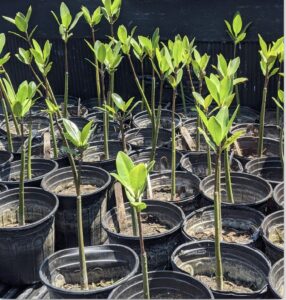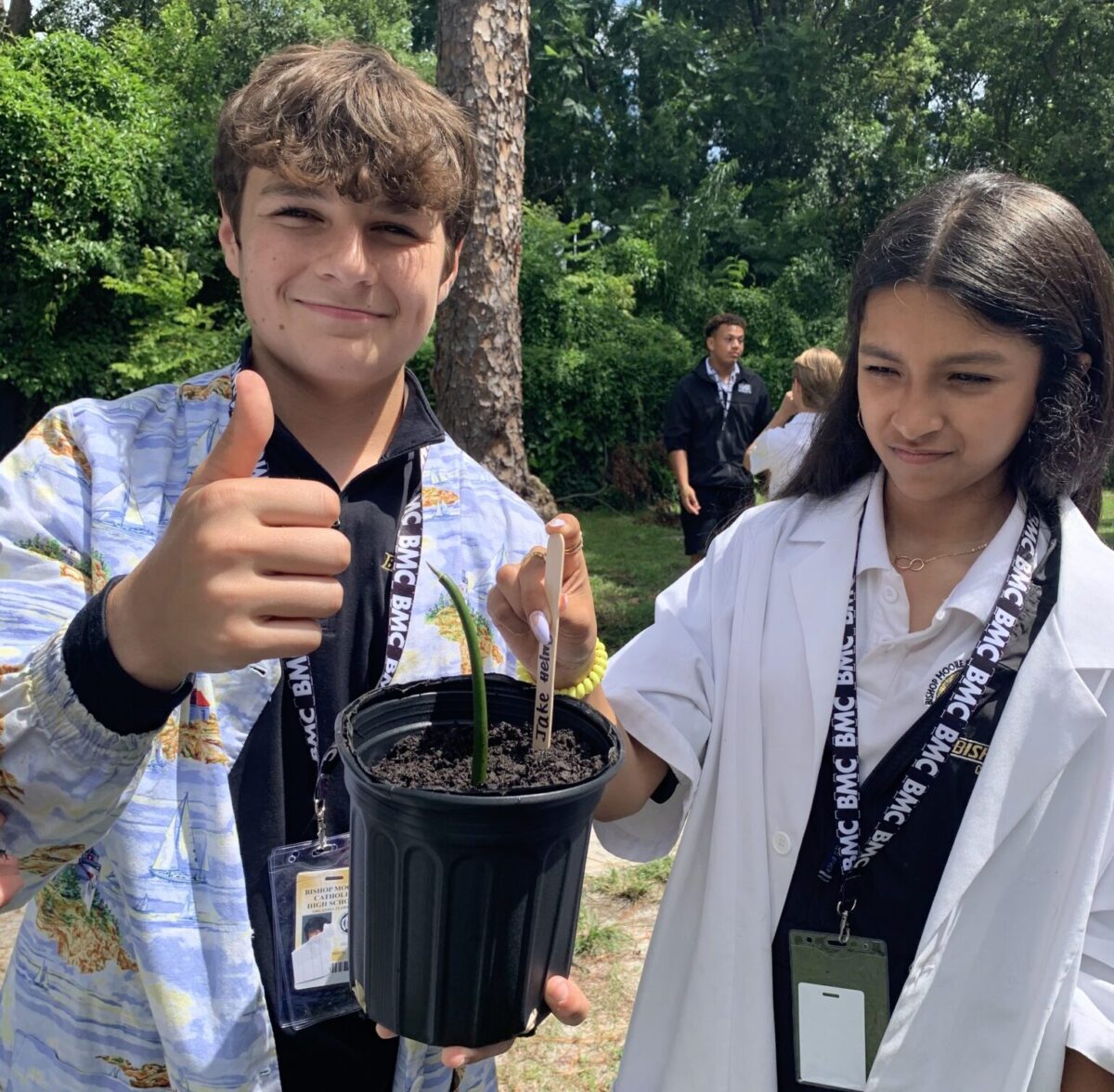ORLANDO | Bishop Moore Catholic High School students are living out Pope Francis’ urge to care for creation. While planting mangroves on campus, they are planting seeds of faith.
The environmental project began in 2022 when former biology teacher Jessie Copertino took the words of Pope Francis, to confront “the double crisis of climate change and the reduction of biodiversity.”
Copertino turned her passion to save the environment into reality by partnering with the University of Central Florida’s Coastal and Estuarine Ecology Laboratory as she had done in graduate school. The goal was consistent with that of Pope Francis, to create change by modifying lifestyles and destructive systems to protect God’s creation.
“Mangroves are keystone species, providing many ecological services,” Copertino said. “They stabilize sediment to prevent erosion, provide protection from storms, and sequester carbon dioxide from the atmosphere. Additionally, they are a foundational species, meaning they physically structure the community (by providing) habitats for diverse communities of animals such as crabs and birds. Their roots provide nursery habitat for many commercially important fish species.”
Six months later, still hoping to raise awareness about restoration and caring for the environment with former students, Copertino asked science teacher Lucie Dempsey to take the lead on this vital project.
Biology students planted and cared for the mangroves for the first half of the year. Environmental science students took over for the second half. Students from freshmen to seniors have all been asked to participate.
“As part of the environmental science curriculum, students learn about the ecological importance of mangroves as well as the ecosystem services that the mangroves provide for humans,” said Dempsey.
 The mangroves grew in kiddie pools behind Bishop Moore science buildings on campus before members of UCF’s Coastal and Estuarine Ecology Lab (CEELAB) picked them up in early May 2023.
The mangroves grew in kiddie pools behind Bishop Moore science buildings on campus before members of UCF’s Coastal and Estuarine Ecology Lab (CEELAB) picked them up in early May 2023.
“CEELAB will continue to grow the mangroves on the UCF campus for an additional one to two years,” Dempsey said. “Then they will be planted on Florida shorelines as part of shoreline stabilization projects.”
Doctor Linda Walters, Pegasus professor of biology at UCF, shared growing mangroves allow students to experience “first hand, longterm engagement with the species/ habitat, becoming stakeholders in the project, and improve the Indian River Lagoon.” The students are responsible for taking care of red mangroves during their most vulnerable months as they ensure the plants receive enough water, remain in a temperature-controlled environment, and remove any insect infestations.
The plan is to continue this collaboration next school year. “God calls us to be stewards of all He has created on Earth,” noted Dempsey. “All nature brings glory to God; therefore, our care for His creation serves as an act of thanksgiving and worship.”
By Lana Kaczmarek, Special to the Florida Catholic, May 25, 2023

